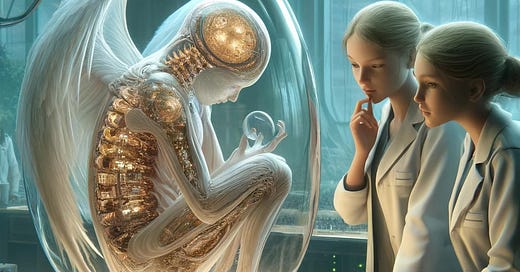The recognition of the fact that most — perhaps all, but this is arguable — information can be encoded in binary form, along with the rise of computers, has given birth, in modern culture, to the idea that everything is just a big computer.
According to this particular paradigm, which is by far the most dominant comparative analogy by which life processes in the sciences are currently measured, everything around us is ultimately a computer of one kind of another. Ergo, we must use the analogy of computing to interpret everything we see: our lives, our emotions, birth, death, all types of behavior.
Everything comes out of a big natural, biological computer.
This is a newfound obsession, since computers didn’t even exist (except in the form of jacquard looms which, yes, were the world’s first computing machines) before the last century, and no one ever tried to interpret anything about life from the perspective of computers. In the meantime, over the last century (a wee bit less than a century, actually) we’ve gone from 0 to 100 here, completely upending every interpretive mechanism human beings ever invented (and they were once many, imaginative and magical) in favor of a single overwhelming mechanism based solely on digits and mathematics.
Having done this, we are now using artificial intelligence to turn the keys to the house and the car—
and our children—
over to them.
Because it's so true that everything is a computer, and it's so true that they will do only good things for us.
Keep reading with a 7-day free trial
Subscribe to Zen, Yoga, Gurdjieff: Lee's Gurdjieff Newsletter to keep reading this post and get 7 days of free access to the full post archives.





